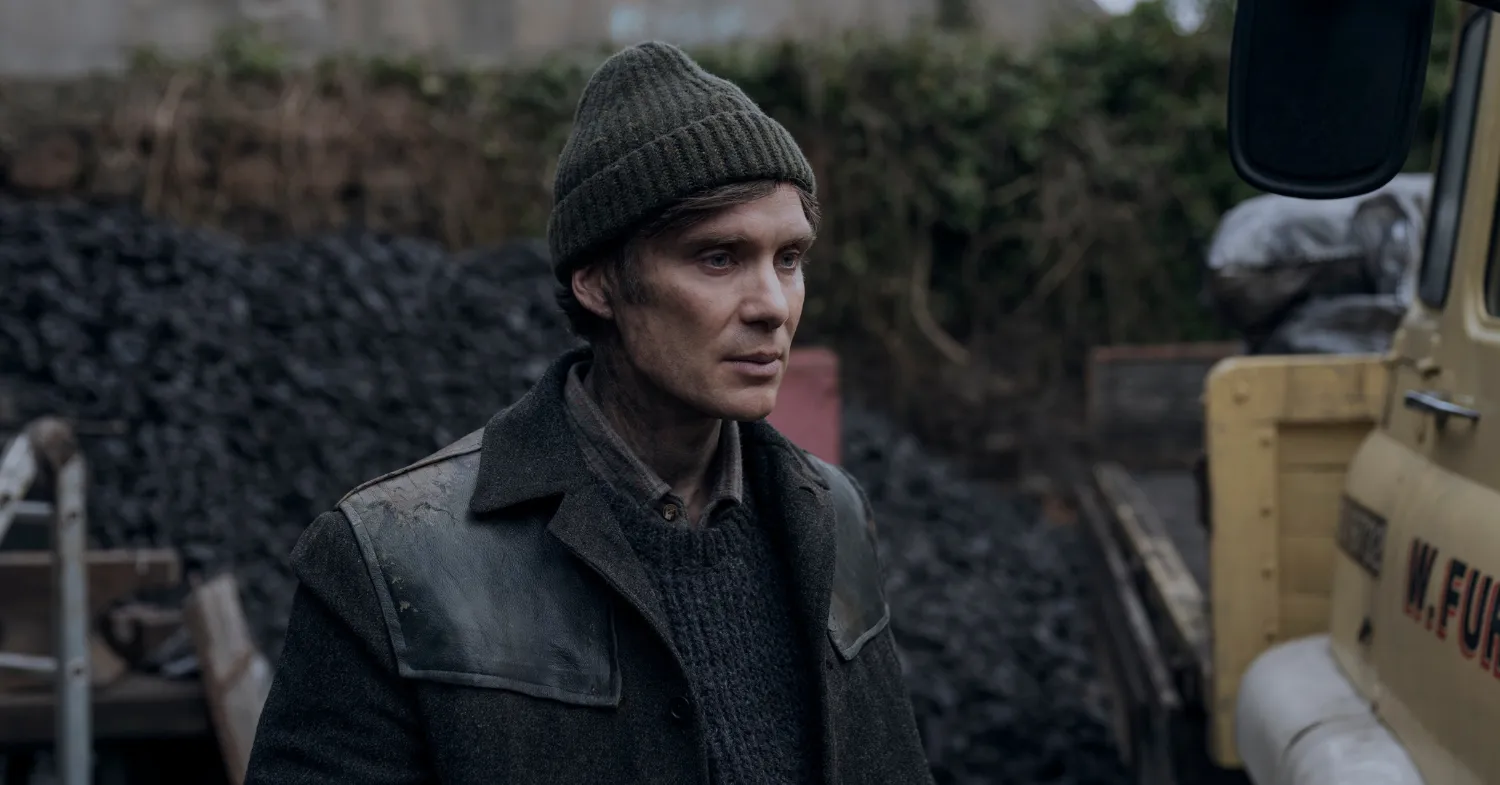🎬 Small Things Like These (2024)

Introduction and Narrative Overview
Small Things Like These, released on November 1, 2024, in Ireland and the UK, and November 8 in the US, is a haunting historical drama directed by Tim Mielants and adapted by Enda Walsh from Claire Keegan’s acclaimed 2021 novella. Set in 1985 New Ross, Ireland, during the Christmas season, the film stars Cillian Murphy as Bill Furlong, a coal merchant and father of five daughters. This Irish-Belgian co-production delves into the dark legacy of the Magdalene Laundries—Catholic Church-run institutions that imprisoned and exploited “fallen” women from the 1820s to 1996. Bill’s quiet life unravels when he discovers a shivering girl, Sarah (Zara Devlin), locked in a convent coal shed, sparking a moral reckoning tied to his own past.
The narrative follows Bill’s gradual awakening to the convent’s abuses, run by the steely Sister Mary (Emily Watson). Flashbacks reveal his childhood as the son of an unmarried mother (Agnes O’Casey), spared a similar fate thanks to a kind employer, Mrs. Wilson (Michelle Fairley). As Bill delivers coal, he uncovers the town’s complicity in the laundries’ horrors—girls forced into labor, their babies sold—culminating in a subtle act of defiance that ends ambiguously. The story is less about grand resolutions than quiet courage, its sparse 98-minute runtime mirroring the novella’s restraint. It premiered at the 74th Berlin International Film Festival on February 15, 2024, earning praise for its understated power.
Small Things Like These excels in its intimacy, using Bill’s perspective to expose a systemic evil without sensationalism. Its Christmas setting—a stark contrast to the bleakness—evokes Dickensian moral fables, though its pessimism is distinctly Irish. The plot’s simplicity can feel slow, and the abrupt fade-to-black leaves some wanting more closure. Yet, its focus on small acts amid overwhelming silence captures the era’s stifling atmosphere, making it a poignant reflection on guilt, duty, and the cost of resistance.

Performances and Character Dynamics
Cillian Murphy anchors Small Things Like These with a performance of devastating stillness. Fresh off his Oscar-winning turn in Oppenheimer, Murphy plays Bill as a man of few words, his weathered face—a canvas of sorrow and resolve—conveying a lifetime of suppressed pain. His subtle shifts, from routine coal deliveries to haunted stares, carry the film’s emotional weight, embodying a good man trapped by his own complicity. Emily Watson’s Sister Mary is a chilling counterpoint, her cold authority and veiled threats (“We know where your girls go to school”) dripping with institutional menace. Their confrontation—a verbal chess match—is a standout, Watson matching Murphy’s intensity with icy precision.
The supporting cast enriches the texture. Eileen Walsh’s Eileen, Bill’s wife, offers weary pragmatism, urging him to ignore the convent’s secrets, while Michelle Fairley’s Mrs. Wilson provides a rare glimmer of past kindness. Zara Devlin’s Sarah, though brief, pierces with her terrified plea, and Agnes O’Casey’s young mother adds tender depth to Bill’s backstory. The ensemble—Clare Dunne, Helen Behan—grounds the town’s muted fear, though many roles feel like sketches, reflecting the story’s focus on Bill.
Bill’s dynamic with Sarah drives his arc, her plight echoing his mother’s near-miss with the laundries. His bond with Eileen strains under his growing unrest, while Sister Mary’s power looms over all, a reminder of the Church’s grip. The film thrives on these quiet tensions—Bill’s internal war versus external pressures—though its restraint can distance viewers from deeper character exploration. Murphy’s hypnotic grace, paired with Watson’s menace, elevates a minimalist tale into a profound study of conscience.

Visuals, Action, and Technical Craft
Visually, Small Things Like These is a muted masterpiece, its soft greys and coal-dusted palette evoking 1980s Ireland’s chill. Cinematographer Frank van den Eeden frames New Ross as a claustrophobic maze—narrow streets, smoky skies—mirroring Bill’s trapped soul. The convent looms like a gothic specter, its coal shed a stark symbol of hidden cruelty. Mielants’s direction favors stillness—long takes of Murphy scrubbing coal off his hands or staring into the void—over flash, building dread through atmosphere. The 360-degree pans of the town square and convent halls immerse us in Bill’s world, while sound design—distant cries, church bells—adds eerie layers.
Action is sparse, fitting the film’s introspective tone. The coal shed encounter jolts with quiet urgency, and Bill’s final act—a slow walk with Sarah—lands with understated power. Composer Senjan Jansen’s mournful score, paired with period-appropriate silence, amplifies the melancholy, though it avoids overstatement. Editors Andi Cummings and Nico Leunen keep the 98 minutes tight, though the slow build may test patience. The production design—shabby homes, flickering Christmas lights—nails the era’s decay, a stark contrast to the convent’s sterile order.
Technically, it’s flawless yet restrained. The lack of explosive catharsis reflects the story’s intent, but some CGI (like coal dust) feels flat against the practical grit. Still, the film’s visual language—every frame purposeful—honors its source, crafting a somber beauty that lingers. It’s not a thrill ride but a slow burn, its craft serving the narrative’s whispered truths with dignity.

Themes, Reception, and Franchise Impact
Thematically, Small Things Like These grapples with complicity, courage, and the scars of history. Bill’s journey questions how good people enable evil—here, the Magdalene Laundries’ abuses—through silence. His mother’s past ties personal stakes to systemic sin, while the Christmas backdrop irony-laces Christian hypocrisy. It’s a tale of small kindnesses against vast wrongs, its open ending suggesting hope without preaching redemption. The film indicts the Church’s dominance, yet its focus on Bill’s choice keeps it human, not polemical.
Reception has been strong, with a 93% Rotten Tomatoes score (7.7/10) and an 82/100 on Metacritic, based on reviews as of February 2025. Critics laud Murphy’s “searing nuance” (Variety) and the film’s “quiet power” (The Hollywood Reporter), though some find it “enervating” or too subdued. Audiences (81% Popcornmeter) embrace its emotional pull, pushing a modest $2.8 million box office against a $12 million budget—profitable via streaming on Fandango at Home. Its Berlin premiere and Oscar buzz (Murphy, Watson) cement its prestige.
This isn’t a franchise starter but a standalone triumph, co-produced by Murphy’s Big Things Films and Artists Equity (Matt Damon, Ben Affleck). It elevates Keegan’s novella into a cinematic lament, joining The Quiet Girl in spotlighting Irish trauma. As of February 28, 2025, it’s a critical darling—less a blockbuster than a meditative milestone, proving small stories can cast long shadows. Its legacy lies in its restraint, a whisper that roars through history.








